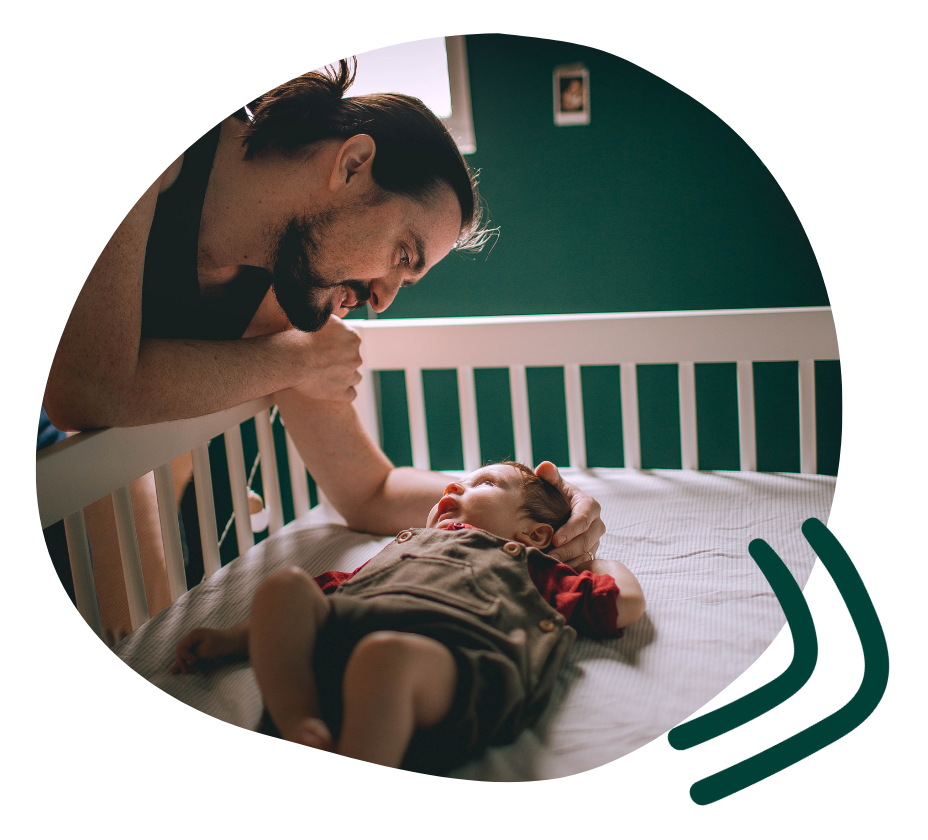
By Nurture Connection
As an Early Relational Health (ERH) field catalyst, Nurture Connection believes in promoting equitable access to Early Relational Health supports and resources for all children, families, and communities. Children’s earliest and most formative relationships happen within their families and the broader social context of the communities that surround them. This requires recognizing the importance of individuals’ and communities’ social, cultural, political, ecological, and spiritual identities. It also means supporting families to strengthen their basic relational capabilities, particularly within the cultural context of relationships.
Our equity mandate was the impetus behind the Nurture Connection Family Network Collaborative (FNC). The FNC parent leaders represent a diversity of experiences and cultural traditions and the wisdom and lived experiences of families that they bring to the FNC, to guide Nurture Connection’s catalytic efforts. It was in this spirit of being led by parent partnership that the FNC leaders came together in a recent conversation to explore how the concepts of “respect” and “dignity” show up relationally for families and communities. There was also a recognition by the group that the concepts of dignity and respect are particularly crucial in our society right now because we’re facing unprecedented challenges that directly threaten the foundations of human connection and social cohesion.
Here are some key themes that emerged from this important and timely discussion.
Respect is the bedrock of healthy relationships: “Respect both ways: I respect myself, I respect you.”
Dignity was often described in relation to the idea of “respect,” which is often modeled relationally. Parents and community members play a big role in helping children develop a sense of self-respect as well as communal belonging. In addition to “being an example of someone that respects yourself and others,” this involves “parenting in a way that respects the dignity of your children, so they feel respected and you’re modeling how others should be treated.”
Opportunities to shape a healthy sense of self-respect, values, and morals are deeply rooted in early childhood experiences, and the relationship between parent and child:
“One dad spoke about himself as a child and said that he wanted to have the respect of his mom with his reputation and his actions. He would think about how they would reflect upon that — like, what his mom would think — choosing not to participate in certain ‘low-standard’ behaviors or activities because of reputation and the idea of what his mom would think. And then instilling those same values and morals in his own kids today.”
A key ingredient of respect was raising children who are independent and secure in their own identity — “So they don’t have to wonder how other people might perceive their own identity, but they know who they are and they stand by that. We have to learn how our children also learn to communicate their preferences and respect that individuality.”
Dignity fosters empathy and understanding: “Dignity is an energy you pass from one to the other.”
Aligned with the concept of respect, dignity was seen as the shared human experience that transforms relationships from transactions or power dynamics into genuine partnerships where both people can thrive while remaining authentically themselves. Similarly, building mutual trust through relationships is an important component of this process. “Dignity means knowing your worth and carrying yourself with self-respect no matter what life throws at you. It’s walking in confidence without needing validation, setting boundaries without guilt, and choosing peace over proving a point. True dignity shows in how you treat yourself and others with grace, strength, and quiet power.”
Parent leaders saw preserving and promoting mutual dignity as being core to their partnership with their families: in keeping their promises to the families by regularly showing up to listen, connect, and ask questions, and by ensuring parents feel seen and appreciated.
Similarly, this is an approach FNC parent leaders model in how they work together, to reflect, share, and learn from each other:
“I think we’re also learning what this word means from the way we have interacted with each other in this group, and how the whole process of the FNC is really the core of everything that has been done from the very beginning —– [we show] dignity not only to our families but to each of us in this group.”
Respect and dignity embody Early Relational Health in practice.
FNC parent leaders see these concepts as being essential for the promotion of relational understanding and healing. Embodying mutually affirming ways of being, on both intrapersonal (individual) and interpersonal levels — guided by the principles of respect and dignity — is a pathway for creating relationship-rich communities where every family feels seen, heard, included, and validated.
“All of this is deeply connected to Early Relational Health because it’s about making sure both the child and the caregiver feel seen, valued, and respected. When a child is treated with dignity, they begin to understand that they matter and are safe in their relationships. At the same time, when caregivers feel respected and supported, they’re better able to show up emotionally for their children. Strong, healthy relationships start with mutual dignity. It’s the foundation for trust, connection, and emotional growth.”

At its heart, Nurture Connection is an Early Relational Health field catalyst comprised of an engaged, insightful community of parents, caregivers, researchers, medical professionals, philanthropists, early childhood systems leaders, and policymakers dedicated to ensuring every child has strong, nurturing relationships during their earliest, formative years.
Our “Reflecting Forward” series features guest articles and reflections by dedicated members of our national network, from across the country — who are advancing the Early Relational Health field through practice, research, and parent leadership. These reflections pave paths forward for transforming early childhood systems and imagining new possibilities for children, families, and communities.